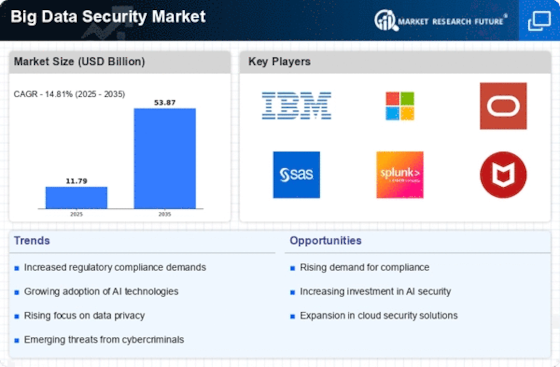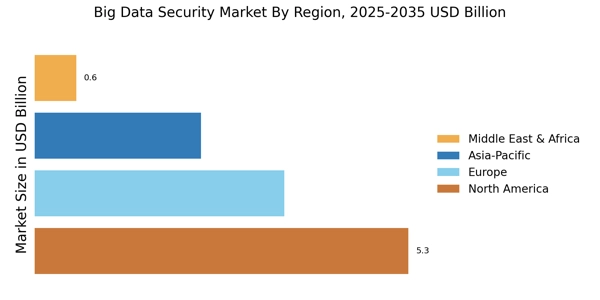Big Data Security Market Summary
As per Market Research Future analysis, the Big Data Security Market Size was estimated at 11.79 USD Billion in 2024. The Big Data Security industry is projected to grow from 13.54 USD Billion in 2025 to 53.87 USD Billion by 2035, exhibiting a compound annual growth rate (CAGR) of 14.81% during the forecast period 2025 - 2035
Key Market Trends & Highlights
The Big Data Security Market is experiencing robust growth driven by regulatory compliance and advanced technology integration.
- North America remains the largest market for Big Data Security Market, driven by stringent regulatory compliance requirements.
- The Asia-Pacific region is emerging as the fastest-growing market, fueled by increasing cybersecurity threats and data complexity.
- Cloud-Based solutions dominate the market, while Hybrid solutions are rapidly gaining traction due to their flexibility.
- Rising cybersecurity threats and the need for regulatory compliance are key drivers propelling the growth of the Big Data Security Market.
Market Size & Forecast
| 2024 Market Size | 11.79 (USD Billion) |
| 2035 Market Size | 53.87 (USD Billion) |
| CAGR (2025 - 2035) | 14.81% |
Major Players
IBM (US), Microsoft (US), Oracle (US), SAS (US), Splunk (US), McAfee (US), Cisco (US), Palantir Technologies (US), Check Point Software (IL)


















